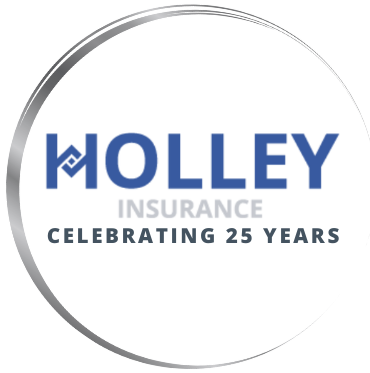Ultimate Guide to Insurance for Virginia Attorneys
We’ve put together an Ultimate Guide to Insurance for Virginia Attorneys because a law practice is a unique business in many ways. Yet, it is a business nonetheless. As such, you face risks that are unique to your industry and some that are just like most other businesses.

Your training and experience have prepared you to do an outstanding job of doing the legal work of your business. However, you may not be addressing some of the insurance risks of your business? Let’s examine some of those risks and how to best address them. Ready for the truth?
Here’s our Ultimate Guide to Insurance for Virginia Attorneys

Malpractice Insurance
The truth of the matter is that The Bar tells you you need it, so you go buy it, but you’re not really sure why. Well, this is why…
5-6% of all private lawyers face legal malpractice charges each year. And claims on average take 6-24 months to settle. Even the best attorneys make mistakes.
Claims are more successful than they used to be. An ABA study showed in 2015, 57% of suits brought against lawyers won their cases, ranging in judgements between $50,000 – $2 million. This doesn’t include the legal costs of going to court. The lesson here is that whether you’re great at defending your case or not, battling it out WILL almost ALWAYS be more expensive than the cost of insurance.
About your practice
It matters what kind of cases you deal with. Expect your premiums to be around 2 to 3 times higher when practicing in areas that are more prone to malpractice claims. Higher risk areas would include claims dealing with business transactions, corporate and securities, real estate and trusts and estates.
It’s ultimately protecting your clients through protecting you! If you did something that materially affected a client’s case and cost them, let’s face it, you know you are responsible and you should pay. This is what your liability insurance is for!
Shopping for a policy
Very few insurance agents offer this coverage. It is fairly specialized and most carriers don’t offer it. You want to work with an agent that understands your business and the unique risks.
The Virginia Bar Association also offers this coverage to their members. This can be a good option for some. However, if you go through them be aware that:
- There are more carriers available than the ones that they offer. You could be missing a better deal by limiting your search.
- YOU have to do the shopping! YOU have to do the research. Tell me, what actual working attorney has time for that??

Let’s get down to brass tacks…
What you should know about Professional Liability or Malpractice insurance
Occurrence Vs. Claims-Made
Also, it is important to note that Malpractice policies are typically written on a “claims made” basis rather than an “occurrence” basis. This is an important distinction that really has to do with the timing of a claim.
Occurrence – Simply put, under an occurrence form of insurance, a claim simply needs to have occurred while the policy was in force to be paid. So, even if the policy cancels, you have coverage as long as the incident occurred while you had coverage. This is how most standard policies like auto insurance work.
Claims made – A claims made policy requires that both the incident occurrence and the claim notification take place during the policy period. This makes keeping continuous coverage in force VERY important. If you were to retire or change professions, it is advisable to buy an extended reporting period, commonly known as tail coverage, to extend the amount of time that you have to report a claim beyond the cancellation date in case there is an issue bubbling up that you are unaware of.
Under “occurrence” coverage is determined by when the incident happened, regardless whether you have that coverage in effect today. This is how your personal auto or home policy is written.
Professional Liability insurance generally works on a “claims-made” basis. So when you handled a case in 2017 and the person is claiming malpractice, it doesn’t necessarily matter what policy you had in force in 2017, only that you are covered now, in 2019, when the claim is being made AND your retroactive date is before the incident.
Retroactive Date – date from which you have had continuous coverage (even if you changed companies during this time) or a date in the past from which your insurer has agreed to cover you. Claims that arise from events that occurred prior to this date will not be covered.
Because of this, you need to ensure you have coverage pretty much indefinitely.
- Know your retroactive date, don’t ever change it, and usually to maintain it, you have to ensure no gaps in coverage year after year. This pretty much means it needs to be the date you started practicing to make sure you are covered throughout your career. Any claim made regarding an incident before this retroactive date will not be covered!
- Pay attention to the reporting period – you will most likely want to extend it with a “tail” should you retire or change professions.

Defense Cost
Pay attention to the defense costs in your policy – are they inside or outside the policy limits?
This is a condition you want to pay extra attention to. Often it is written in a really confusing way and may be a combination of inside and outside.
“Inside” means that it’s taking defense costs from the limit of coverage for the claim. “Outside” means the defense costs are covered above and beyond the limit. There may also be a condition that you pay the first so many dollars (deductible or self-insured retention) of your defense before the insurance carrier will pick up those costs.
Speaking of defense, do you get to choose whether the carrier will settle or you go to court, and who pays?
The “hammer clause” is something you want to pay attention to, where the carrier will set a condition that by signing the policy, you waive the right to decide whether you go to court or settle a claim. Upon your refusal to settle, you are then responsible for additional settlement funds or judgement, legal expenses, and claims expenses.
Other considerations:
- A counsel selection provision may or may not be included in your policy. This gives you some say in who may defend you in the event that a suit is filed against you.
- You will have to disclose where you work and the type of work you do. These things will play a big part in making sure that you are covered properly. For example, those attorneys with fiduciary responsibilities will be riskier to the insurance carrier and carry a higher premium. Also, if your practice expands and you start working in different localities, make sure to update your carrier!
- If you have partners, make sure to look out for the innocent partner clause. This keeps innocent parties from being affected by claims made against a partner.
- Remember that $100,000 is not much. You know better than anyone that it’s no big thing to have a million dollar settlement in claims court. And defense costs reach $100,000 very quickly too. Remember this when you’re choosing your own limits for this policy. Buy appropriately high limits.
- Know that there will be exclusions for being intentionally bad. Basically, you can’t intentionally be a horrible attorney and expect your claims from those actions to be paid by the carrier. This includes acts that are intentionally negligent, criminal, or malicious.

You know how to run your cases, don’t forget to run your business!
Protect your property and/or office building, vehicles, and employees…
Your Professional liability will cover risks that are more unique to your business. However, covering your business for ONLY malpractice leaves massive holes in your protection and leaves you exposed to risks that could put you out of business.
Here are some of the common business exposures that you should insure:
- Building – If you own your building or are required by your landlord to insure the building that you operate from, it is simple and generally affordable to insure it against loss by fire, windstorm, vandalism, etc.
- Property – Cover the desks, files, computer equipment, conference table, and basically everything in your office that is not nailed down.
- General Liability – Coverage for slips, trips, and falls at your business premises as well as property damage to clients, advertising injury and more.
- Commercial Auto – Even if you do not provide company cars, you have an exposure any time an employee uses their own vehicle while doing company business (transporting files, going to the courthouse, picking up lunch for the office, doing bank deposits, etc.). This risk can be insured very inexpensively with Hired and Non-Owned Autos coverage.
- Workers Compensation – The Virginia Workers Compensation Commission requires that you carry this insurance if you have more than 2 employees. We recommend you do it even if you have only 1. Otherwise, your business could be liable for any injuries incurred while your employees are on the job.
- Bonds – Attorneys have various needs for bonds for themselves as well as their clients depending on the type of practice they run.
Whether you rent an office space, work out of your home, or own your own building, you’ll need to ensure that your business property is protected. If your vehicles are driven by assistants, you’ll want specific coverage for that purpose. And your employees should be covered on a workers compensation policy. Purchasing property insurance is a whole lot cheaper than paying these types of claims out of your pocket!
Many lawyers choose to self-insure some of these risks thinking they can act as their own counsel, thus saving money. However, when you look at the cost of insuring these risks, you will find that the total annual premium is likely to be equal to only a handful of billable hours. It will likely cost you MORE to self-insure!
Most of all, find an Agent you can trust and let them take the work out of making sure you are protected! Tell us what you have and let us guide you on what you need. You focus on getting back to the lawyer-ing!

A little more about Holley Insurance…
Holley Insurance was founded in 2000, and retains a core base of loyal clients. We have locations in Roanoke, Rocky Mount, and Forest, VA. As an independent insurance agency, Holley Insurance represents a carefully selected group of financially strong, reputable insurance companies. Therefore, we are able to offer you the best coverage at the most competitive price. If you’re interested in starting a quote online, click here!
